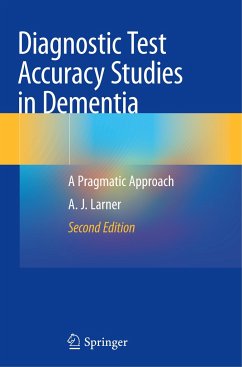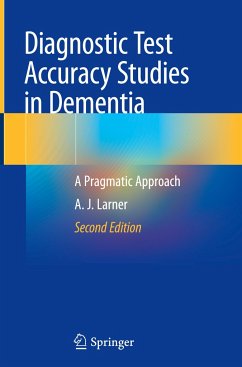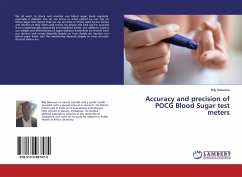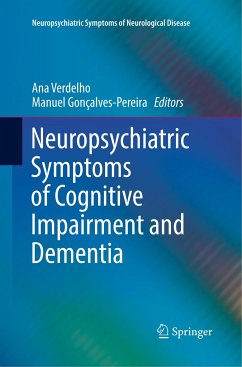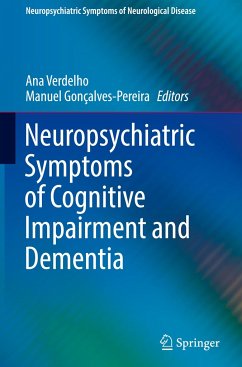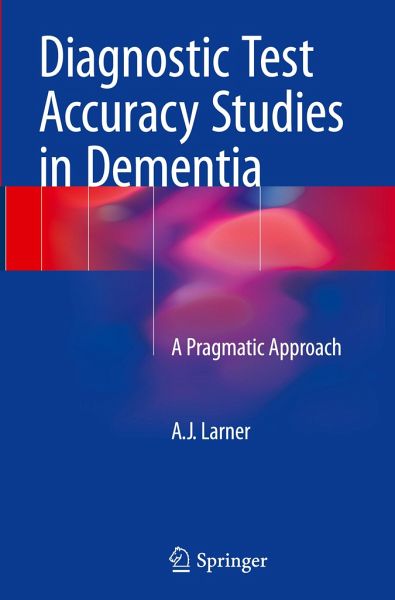
Diagnostic Test Accuracy Studies in Dementia
A Pragmatic Approach
Versandkostenfrei!
Versandfertig in 6-10 Tagen
76,99 €
inkl. MwSt.

PAYBACK Punkte
38 °P sammeln!
This book explains the key steps in planning and executing diagnostic test accuracy studies in dementia, with clear explanations of difficulties and pitfalls and with jargon clearly explained. The emphasis is on pragmatic diagnostic test accuracy studies which can be integrated into day-to-day clinical practice. The book is based on the author's experience over more than 10 years, which has resulted in the publication of many diagnostic test accuracy studies.The text is structured as for a research publication on a diagnostic test accuracy study (Introduction, Methods, Results, Discussion), wi...
This book explains the key steps in planning and executing diagnostic test accuracy studies in dementia, with clear explanations of difficulties and pitfalls and with jargon clearly explained. The emphasis is on pragmatic diagnostic test accuracy studies which can be integrated into day-to-day clinical practice. The book is based on the author's experience over more than 10 years, which has resulted in the publication of many diagnostic test accuracy studies.
The text is structured as for a research publication on a diagnostic test accuracy study (Introduction, Methods, Results, Discussion), with a final chapter on Future Prospects. Each of the chapters is devoted to a practical and structured overview of each of these steps in performing and writing up such a study.
Diagnostic Test Accuracy Studies in Dementia: A Pragmatic Approach is aimed at any clinician with an interest in dementia disorders: old age psychiatrists, geriatricians, neurologists, neuropsychologists and primary care physicians, as well as other professions allied to medicine. The book is also of interest to any clinician/researcher with an interest in diagnostic test accuracy studies.
The text is structured as for a research publication on a diagnostic test accuracy study (Introduction, Methods, Results, Discussion), with a final chapter on Future Prospects. Each of the chapters is devoted to a practical and structured overview of each of these steps in performing and writing up such a study.
Diagnostic Test Accuracy Studies in Dementia: A Pragmatic Approach is aimed at any clinician with an interest in dementia disorders: old age psychiatrists, geriatricians, neurologists, neuropsychologists and primary care physicians, as well as other professions allied to medicine. The book is also of interest to any clinician/researcher with an interest in diagnostic test accuracy studies.



